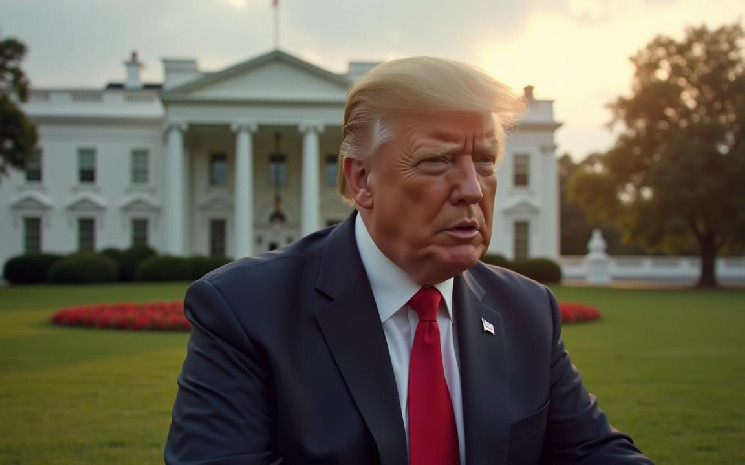Binance and the SEC: A New Chapter in Crypto Regulation?
Introduction: The Case and the Motion to Stay
In a significant development in the ongoing legal battle between Binance and the U.S. Securities and Exchange Commission (SEC), both parties have jointly requested a federal judge to pause the regulator’s lawsuit against the cryptocurrency exchange. The motion, filed late Monday, cites the potential impact of a newly formed SEC task force dedicated to digital asset regulation. This task force, established last month, is expected to play a crucial role in shaping the regulatory landscape for cryptocurrencies. The request for a 60-day stay suggests that the SEC may be reevaluating its enforcement approach under the new administration, signaling a possible shift in how the agency handles crypto-related cases.
A 60-Day Stay: A Sign of Change in the Air?
The motion to pause the lawsuit for 60 days is being interpreted as a potential indication of a change in the SEC’s crypto enforcement strategy. Under Democratic leadership, the SEC had taken a firmer stance against crypto platforms, often relying on enforcement actions to set precedents in the absence of clear regulations. However, with the change in administration, the SEC appears to be considering a more crypto-friendly approach, aligning with President Donald Trump’s stated goal of making the U.S. a global hub for the cryptocurrency industry.
The stay request marks the first concrete step toward retreating from the SEC’s previous enforcement-driven strategy. The SEC’s new task force is expected to focus on developing comprehensive regulations for digital assets, which could fundamentally alter how the agency interacts with crypto companies like Binance. By pausing the lawsuit, the SEC is essentially buying time to assess whether the new regulatory framework under development might resolve the issues at hand without the need for prolonged litigation.
Binance’s Perspective: Dismissing Allegations and Embracing Regulation
Binance, its U.S. unit, and founder Changpeng Zhao were first sued by the SEC in June 2023. The regulator alleged that the crypto exchange had artificially inflated trading volumes, diverted customer funds, and misled investors about its market surveillance controls. Binance has consistently denied these allegations, calling them "without merit." In response to the motion to stay, a Binance spokesperson expressed optimism about resolving the case and reaffirmed the company’s commitment to being "the most secure, licensed, and trusted exchange in the world."
The motion to pause the case has drawn mixed reactions. While Binance views the stay as an opportunity to move past the legal battle and focus on compliance, some critics, including former SEC official Corey Frayer, have expressed concerns about the implications for investor protection. Frayer argued that delaying the case could signal a broader shift in the SEC’s priorities, potentially leading to a "dereliction of duty" in enforcing securities laws.
A New Regulatory Backdrop: The SEC’s Evolving Approach
The formation of the SEC’s new task force on digital asset regulation represents a significant shift in the agency’s approach to crypto oversight. Republican Commissioner Hester Peirce, a long-time advocate for clearer crypto regulations, recently hinted at this policy change during a Federalist Society event. She acknowledged that the SEC had historically relied on its enforcement division to set policy, but emphasized the need for a more proactive and comprehensive regulatory framework moving forward.
Peirce’s comments align with President Trump’s vision of fostering a more crypto-friendly environment in the U.S. The administration has expressed interest in positioning the country as a global leader in the cryptocurrency industry, and the SEC’s new task force is seen as a key step toward achieving that goal. By reviewing existing cases, including the one against Binance, the SEC may be signaling a willingness to revisit its enforcement strategies and adopt a more nuanced approach to regulating digital assets.
Implications for the Future of Crypto Regulation
The joint motion to pause the SEC’s lawsuit against Binance has sparked widespread speculation about the future of crypto regulation in the U.S. If the SEC’s new task force succeeds in developing clear and comprehensive regulations, it could pave the way for greater legitimacy and adoption of cryptocurrencies. However, critics like Corey Frayer warn that any rollback of enforcement could undermine investor protection and create systemic risks.
As the crypto industry continues to evolve, the outcome of this case and the broader regulatory reforms underway will have far-reaching implications. Whether the SEC’s shift in approach achieves the right balance between innovation and investor protection remains to be seen.
Conclusion: A Pivotal Moment for Crypto in the U.S.
The request to pause the SEC’s lawsuit against Binance represents a pivotal moment in the ongoing debate over crypto regulation in the U.S. While the motion signals a potential shift toward a more crypto-friendly regulatory environment, it also raises important questions about the SEC’s commitment to enforcing securities laws and protecting investors. As the agency moves forward with its new task force and reviews existing cases, the crypto industry will be watching closely to see whether the U.S. can indeed become a global hub for cryptocurrencies without compromising on regulatory oversight.















